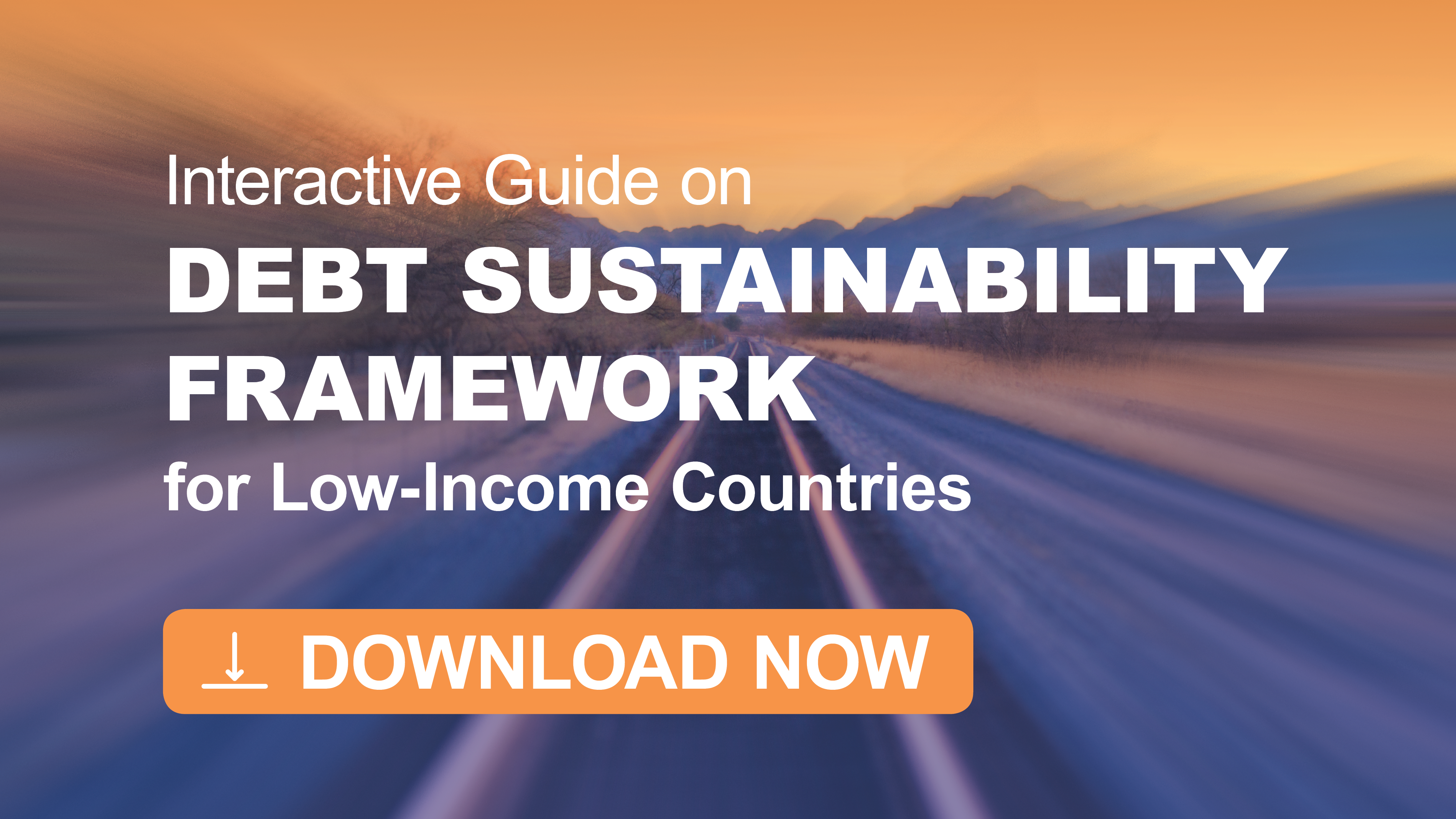Debt Sustainability Analysis Low-Income Countries

Low-income countries (LICs) face significant challenges in meeting their development objectives, including the Sustainable Development Goals (SDGs), while at the same time ensuring that their external debt remains sustainable. In April 2005, the Executive Boards of the Fund and the Bank endorsed a joint framework for debt sustainability assessments (DSAs) in low-income countries. The aim of the DSF is to guide borrowing decisions of low-income countries in a way that matches their need for funds with their current and prospective ability to service debt, tailored to their specific circumstances. More
The search found 0 of 840 documents with the following criteria:


